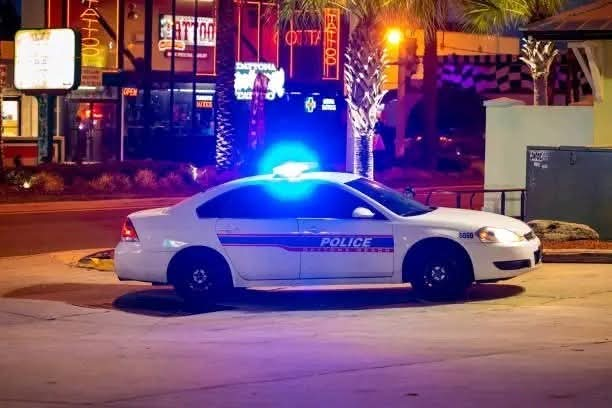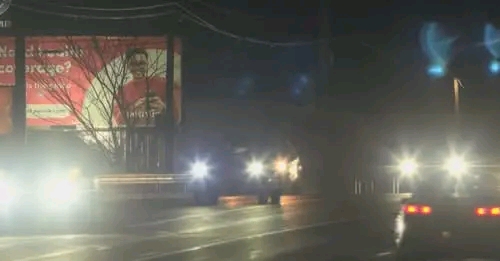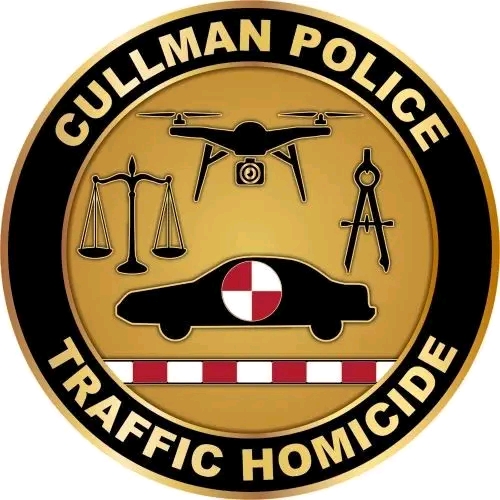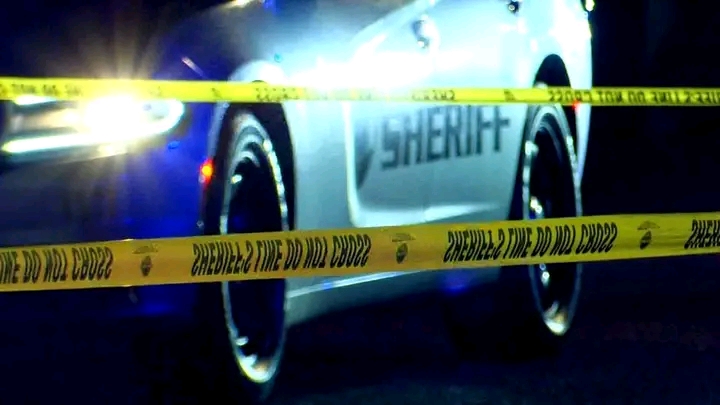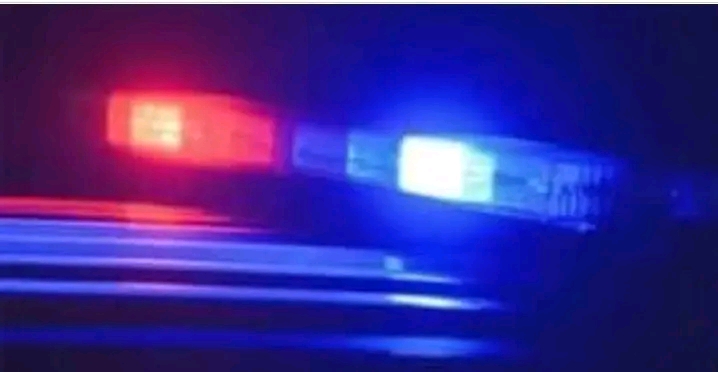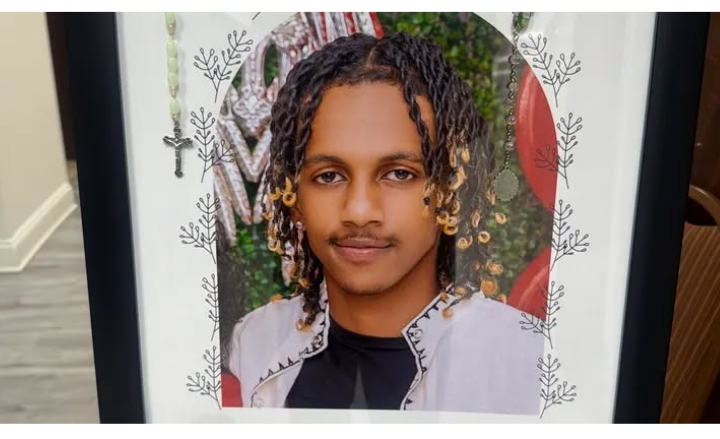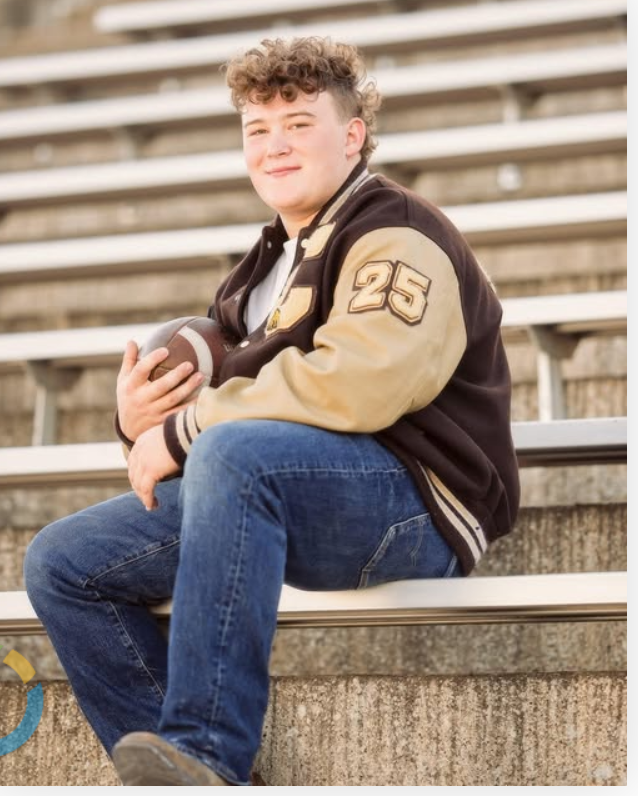Laron Harrison, 38, Shot Multiple Times in the Back and Found Dying on the Floor of Northview Heights Home Before Dawn; ShotSpotter Alert Leads Police to Hazlett Street Where He Was Pronounced Dead at Scene — No Suspect, No Motive, Only a Devastated Family Left Behind
In the stillness of the early morning hours, when most of the world is sleeping and the silence of night blankets neighborhoods like a shroud, a brutal and irreversible tragedy unfolded in Northview Heights. Laron Harrison, aged 38, was shot several times in the back and left to die on the floor of a home on Hazlett Street, never making it to the hospital. His death was not only violent — it was cold, targeted, and unresolved.
Just before 1 a.m., an automated alert from ShotSpotter, the gunfire detection system used by Pittsburgh Police, registered multiple rounds being fired in the area. Within minutes, officers arrived at the scene. What they found was not just a report confirmed, but a man — Laron Harrison — lying on the floor, gravely wounded and unresponsive, his life already slipping away. Emergency responders were called, but it was too late. He was pronounced dead at the scene.
Laron’s murder marks not just another statistic in the city’s crime ledger—it marks the sudden end of a life, a family shattered, and a community left with yet another question that echoes louder than the gunshots: Why?
The Final Moments: A Timeline of the Shooting
Authorities have confirmed that the gunfire erupted shortly before 1:00 a.m. in the 800 block of Hazlett Street, a quiet residential strip within the Northview Heights section of Pittsburgh, a neighborhood long plagued by violence but filled with families striving for peace.
The ShotSpotter system detected the shots and notified police within seconds. Responding officers entered a residence on Hazlett Street, where they found Laron Harrison on the floor, having suffered multiple gunshot wounds to his back. He was still alive when they found him — barely — but rapidly fading.
Despite efforts to render aid, Laron died at the scene, never making it to the hospital. According to police sources, no one else was found in the home at the time, and no weapons were recovered.
Police have not identified any suspects, made any arrests, or established a motive. Surveillance footage from nearby homes is being reviewed, and detectives canvassed the area overnight and into the morning for witnesses. But as of now, there are more questions than answers, and the silence is deafening.
Who Was Laron Harrison?
To the outside world, Laron Harrison might appear as just another victim of inner-city violence. But to his family, friends, and community, he was so much more. He was a father, a brother, a friend, and a familiar presence to many in the area.
Laron grew up in Pittsburgh and lived much of his life in or near the Northview Heights community, which, despite its challenges, has always been a tight-knit place filled with families trying to make ends meet and young people working to carve out a better future.
According to those who knew him, Laron was street-wise but soft-spoken, someone who had seen enough hardship in his life to develop a tough exterior but had a surprisingly gentle soul beneath it. He had two children, one in high school and another just starting elementary school, and was known to be deeply protective of his family.
Though not much is publicly known about his employment or recent endeavors, close friends say Laron had been working on “getting his life right,” trying to distance himself from the streets and focus on family and stability. Whether that transformation was successful or interrupted by something deeper and darker remains unclear — but it does not change the fact that he was a man whose life mattered, and who did not deserve to die in a pool of his own blood, alone, in the predawn hours.
A Crime Scene Full of Echoes and Questions
The home where Laron was found has not been publicly identified by number, but police did confirm it was not his primary residence, leading to further speculation about why he was there at that hour and who else may have been involved.
Crime scene technicians worked throughout the night, photographing the scene, marking bullet casings, and collecting forensic evidence that might lead to a suspect. But thus far, there are no leads, no eyewitness accounts, and no one stepping forward with information.
This is not uncommon in communities like Northview Heights, where fear of retaliation, distrust in law enforcement, and a culture of silence often keep witnesses from speaking. But detectives are urging anyone with information to come forward, reminding the public that an anonymous tip could help bring closure to a grieving family.
“We need the community’s help to solve this case,” said a Pittsburgh Police spokesperson. “Laron Harrison was a son, a father, and a human being. Somebody knows something.”
The Impact on Family and Community
As news of the killing broke, shockwaves rippled through Laron’s community. Relatives gathered outside the crime scene hours later, some sobbing, others simply standing in stunned silence. The emotion was raw, the pain unfiltered.
“He didn’t deserve this,” said one family member through tears. “He was trying to do better. He was trying to live. And now he’s gone.”
Friends posted tributes on social media, many expressing anger, sorrow, and disbelief. A few called for justice, while others called for peace in a neighborhood that has seen far too many homicides in recent years.
Northview Heights, like many urban neighborhoods across America, has long suffered from the consequences of poverty, systemic inequality, and gun violence. Residents have called for more resources, more opportunities, and more support for youth to escape the cycle. But each new shooting reinforces a sense of hopelessness, a bitter reminder that the odds are still stacked against them.
The family is expected to hold a vigil for Laron in the coming days. A GoFundMe may also be launched to cover funeral expenses and to support his children, who now face life without their father.
ShotSpotter: A Lifesaving Tool or Just a Red Flag?
ShotSpotter, the gunfire detection system that alerted police to the shooting, is once again in the spotlight. While praised for its real-time response capabilities, critics argue that the technology is a reactive measure, detecting violence only after it has already occurred.
In Laron’s case, ShotSpotter ensured a rapid police response, but it wasn’t enough to save his life. It has raised questions among city officials and residents alike: Can we do more than just track gunfire? Can we actually stop it before it starts?
Until there are more answers, systems like ShotSpotter remain crucial—but they’re no replacement for community trust, investments in youth, and real prevention efforts.
A Life Remembered, A City Confronted
The death of Laron Harrison will not go unnoticed. It joins a long list of tragedies that speak to larger issues — the trauma of gun violence, the need for justice reform, and the loss of Black lives that continues without resolution.
But beyond policy and headlines, this is a human loss. A person has died. A family is broken. And somewhere in the city, a killer walks free.
Laron’s family now faces a silence that no gunfire detection system can pick up — the silence of a missing voice at the dinner table, of children asking questions no one can answer, of a future forever interrupted.
Until his killer is found and brought to justice, that silence will linger. And the city must reckon with it.
Tags: Laron Harrison, Pittsburgh shooting, Hazlett Street homicide, Northview Heights gun violence, 38-year-old shooting victim, ShotSpotter alert Pittsburgh, unsolved homicide, Pittsburgh crime, justice for Laron Harrison, Black lives lost to gun violence

